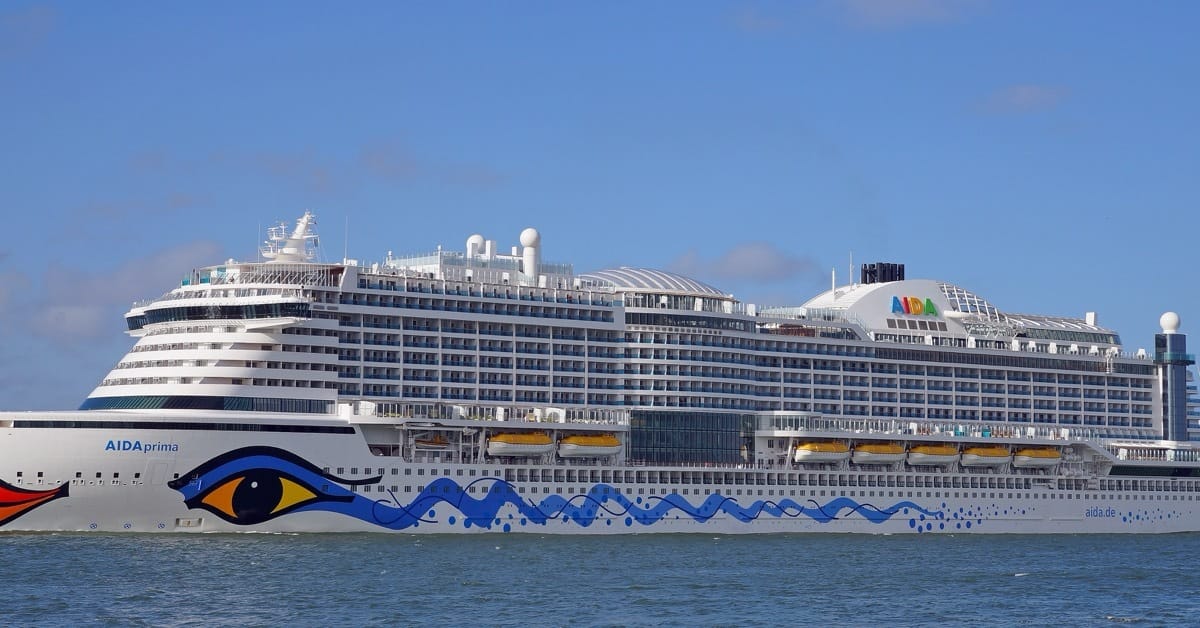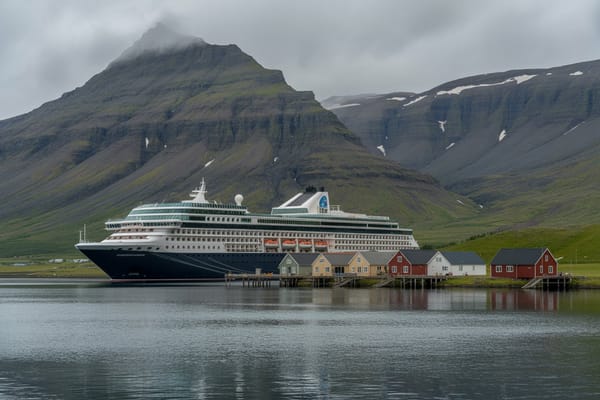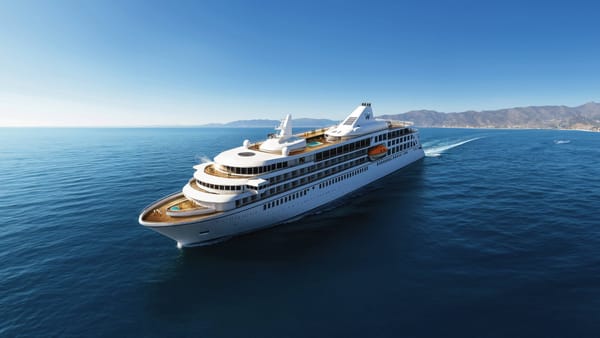AIDAprima tests 100% renewable bio marine fuel

AIDA Cruises recently announced the successful trial of 100% renewable bio marine fuel on its cruise ship, AIDAprima. This significant development occurred on September 5, 2024, at the port of Rotterdam, where the ship was refueled with this sustainable fuel as part of a pilot project aimed at assessing its performance in normal operations.
This initiative is aligned with AIDA Cruises' commitment to reducing greenhouse gas emissions and exploring advanced fuels and technologies. The bio marine fuel used in this trial is produced from advanced feedstocks, including organic waste and residues, and is supplied by VARO Energy. Importantly, this biofuel is expected to reduce greenhouse gas emissions by at least 85% compared to traditional fossil fuels.
The Focus on Sustainable Fuels
Felix Eichhorn, the President of AIDA Cruises, highlighted the importance of identifying advanced fuels that can contribute to a sustainable future. Since 2022, the cruise line has been experimenting with various biofuels, collaborating closely with industry experts and scientific communities to develop effective pathways for emissions reduction.
Eichhorn emphasized that, to achieve sustainability, a broader supply of biofuels and low-carbon alternative fuels is essential. Such fuels need to be available globally, at scale, and at prices that are conducive to widespread adoption.
AIDAprima's Upcoming Testing Phase
Following its refueling in Rotterdam, AIDAprima will undergo testing of the bio marine fuel during its upcoming voyages departing from Hamburg, including explorations of Norway's fjords. The performance of the biofuel will be rigorously assessed to determine its viability for future use across the AIDA fleet.
VARO Energy has been dedicated to developing and supplying a variety of biofuels suitable for marine use since 2019. Their offerings include B30/B100 fuels, hydrotreated vegetable oil (HVO), and low-FAME biofuel blends, making them a key player in the evolving biofuels market.
Industry Significance and Future Implications
In the cruise industry, the transition to bio marine fuels represents a broader shift towards sustainability and compliance with emerging regulations. As the industry grapples with increasing pressure to reduce emissions, initiatives such as AIDA's pilot project could pave the way for more environmentally friendly practices in maritime operations.
Sacha Konan, country president and vice president of commercial for VARO Energy in Benelux and France, expressed enthusiasm about collaborating with AIDA and Carnival Corporation in these efforts. He noted that the operation near their Rotterdam office is a reflection of their commitment to supporting marine clients on their decarbonization journeys.
The Need for Ongoing Innovation
The trial of renewable bio marine fuel on AIDAprima signifies a turning point for the cruise industry. As regulations regarding ship emissions become stricter, companies must continue innovating and adopting alternative fuels to remain compliant and sustainable.
The successful implementation of biofuels in daily operations could also lead to a competitive advantage for cruise companies, as environmentally conscious travelers increasingly seek out sustainable tourism options. An investment in bio marine fuel supplies creates opportunities for cruise lines to distinguish themselves in a crowded market.
A Broader Look at Bio Marine Fuel
Bio marine fuel is derived from renewable sources and represents a significant step forward in reducing emissions from maritime transport. This green alternative not only minimizes the carbon footprint of shipping but also taps into the potential of recycling organic waste and residues.
Unlike conventional fossil fuels, which are a finite resource, bio marine fuels can be produced sustainably, allowing for longer-term energy solutions in the maritime sector. The challenge ahead is scaling up production and optimizing the supply chain to ensure that biofuels can meet the increasing demand from the shipping industry.
Regulatory Landscape Favoring Alternative Fuels
As international regulations evolve, maritime operators are being encouraged to adopt cleaner fuels to minimize environmental impacts. The International Maritime Organization (IMO) has set ambitious targets for reducing greenhouse gas emissions from ships, spurring innovations in fuel technologies.
Many companies are investing in research and development to refine alternative fuels, particularly biofuels, which can easily integrate into existing engines. The combination of regulatory pressures and the public's growing environmental awareness makes this a crucial time for the bio marine fuel market.
Operational Challenges
Despite the benefits of adopting bio marine fuel, there are challenges that the industry must overcome. One of these includes the compatibility of biofuels with existing marine engines and infrastructure.
Moreover, bio marine fuel must maintain a consistent quality and performance standard, similar to traditional fuels. These operational challenges underline the importance of extensive testing, such as the pilot project being conducted by AIDA Cruises.
Innovative Approaches in Fuel Development
Many players in the maritime sector are pushing boundaries to develop novel biofuel solutions. Research institutions and private companies are working together to create more advanced fuel blends that could enhance efficiency while lowering emissions.
By leveraging technology and innovative research, the industry aims to tackle not only operational challenges but also factors like economic feasibility. Sustainable production methods, supply chain efficiency, and fostering partnerships across sectors can contribute to a robust bio marine fuel economy.
A Future Driven by Sustainability
The trial of 100% renewable bio marine fuel on AIDAprima marks a significant step towards a more sustainable future in the cruise industry. If successful, this pilot project could lead to widespread adoption of such fuels across the AIDA fleet and beyond.
The ongoing journey to achieve sustainability in maritime operations is collaborative, requiring input from the cruise lines, fuel suppliers, researchers, and regulatory bodies. Each stakeholder plays a critical role in creating a balanced approach toward lowering emissions while enhancing operational viability.
Conclusion
The successful refueling of AIDAprima with bio marine fuel is likely to influence the cruise industry's approach towards sustainable fuel adoption. As companies race to meet regulatory requirements and traveler expectations for eco-friendly practices, innovative fuel solutions are set to play an increasingly pivotal role in shaping maritime operations.
FAQs
What is bio marine fuel?
Bio marine fuel is a renewable energy source derived from organic materials that can replace conventional fossil fuels used in maritime operations, helping to reduce greenhouse gas emissions.
How does bio marine fuel reduce emissions?
Bio marine fuels can reduce greenhouse gas emissions by at least 85% compared to traditional fossil fuels, primarily by using sustainable feedstocks like organic waste or residues.
What are the benefits of using bio marine fuel in the cruise industry?
The primary benefits include significant reductions in emissions, compliance with regulatory standards, and enhanced public perception of cruise companies as environmentally conscious operators.
How is AIDA Cruises planning to test bio marine fuel?
AIDA Cruises will assess the performance of bio marine fuel during voyages from Hamburg through Norway's fjords, gathering operational data to determine its potential for future use across the fleet.
What role do fuel suppliers play in the transition to bio marine fuels?
Fuel suppliers like VARO Energy are crucial in developing, supplying, and integrating sustainable fuels into maritime operations, fostering innovation, and ensuring compliance with environmental regulations.




